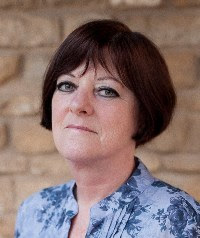from Carol Browne
 |
| Photo by Gaelle Marcel on Unsplash |
The latest chapter in my own book of life is the one headed ‘Retirement’. I have longed to reach this chapter but I am fully aware of the potential dangers that lie within its pages. For many, retirement is the end of usefulness when we become a drain on society and not a contributor anymore. It can make us feel less important and rob us of our self-respect and purpose. We tell ourselves that we have nothing to look forward to but an eventual decline into infirmity. But, as with all previous chapters, we have a choice in how we approach this new status. It’s all a question of attitude.
We can embrace our new freedom because we have earned it, and we don’t have to let ourselves go or stop learning. We can still work if we want to, but now we can choose what work we do, and when. Retirement doesn’t have to mean bingo and chamber music, complaining about the younger generation, or behaving with dignity at all times. The contribution of the elders to society should be enormous because finally we have the time and financial freedom we need to change the world. It’s not just by doing voluntary work or becoming politically active. We are now more useful than ever before because we have a lifetime of knowledge and experience and we can use that to guide those who are still struggling through earlier chapters. I would encourage all my fellow oldsters to reject the idea that they are on the scrapheap, because the fun is only just beginning.
I’m hoping ‘the undiscover’d country’ is some way off for me yet, but when they come to write my epilogue I hope it will show me in a favourable light. I hope it will include my successes as well as my failures. I would like to think I had made a difference to the world and left it in a better condition than I found it, even if it’s in a small way. I have plans for this particular learning experience and trust that the epilogue will celebrate my success. Most importantly of all, once my book is finished, I hope those I leave behind me will give it a five-star review.
Just to prove to you sitting in a rocker all day is not in my future, here's a peek at my latest epic fantasy. I hope you enjoy it.
His adventures in Elvendom left Godwin a changed man, and now bereavement has darkened his world.
In another dimension, a new Elvendom is threatened by the ambitions of a monstrous enemy. But who - or what - is the Dark Lady of Bletchberm?
And what has become of Elgiva?
Reeling from the loss of their Elwardain, the elves ask Godwin for help.
Transported into a strange world of time travel and outlandish creatures, will he succeed in his quest against impossible odds, or will the Dark Lady destroy everything the Elwardain fought to preserve?
EXCERPT
His heart thumping in his throat, Godwin took in all the details of the goblin’s appearance. The creature was probably four feet tall at most and was wearing a sleeveless leather tunic and short leggings over his skinny frame. His arms and legs were hard with thin bands of muscle; sinews moved like taut wires beneath the scant flesh. Godwin fancied that the goblin’s skin had a sickly, greenish tint, but in the firelight it was impossible to be sure.
The goblin moved in an awkward manner, not upright like a man or an elf, but slightly stooped and with bent knees, as though on the verge of pouncing. The dome of his head was as bald and smooth as a pebble, and his very long, pointed ears were attached on either side like those of a lynx. His large eyes glittered like wet malachite and between them a long, sharp nose protruded with all the aesthetic attributes of a small parsnip.
The goblin’s large eyes widened as they swivelled in Godwin’s direction, making his stomach curdle in fear and revulsion.
“Only two of you, then?” said the goblin with a smirk. “Not much of a challenge, is it?” He beckoned with his sword and others of his kind began to creep into the circle.
Godwin glanced around. There were six more of them, each carrying a sword of a curious design, the blade like a thin, metal spiral with a very sharp point. A visceral fear welled up inside him at the sight of these weapons, but he didn’t know why.
 Born in Stafford in the UK, Carol Browne was raised in Crewe, Cheshire, which she thinks of as her home town. Interested in reading and writing at an early age, Carol pursued her passions at Nottingham University and was awarded an honours degree in English Language and Literature. Now living and working in the Cambridgeshire countryside, Carol usually writes fiction but has also taken a plunge into non-fiction with Being Krystyna. This story of a Holocaust survivor has been well received.
Born in Stafford in the UK, Carol Browne was raised in Crewe, Cheshire, which she thinks of as her home town. Interested in reading and writing at an early age, Carol pursued her passions at Nottingham University and was awarded an honours degree in English Language and Literature. Now living and working in the Cambridgeshire countryside, Carol usually writes fiction but has also taken a plunge into non-fiction with Being Krystyna. This story of a Holocaust survivor has been well received.Stay connected with Carol on her website and blog, Facebook, and Twitter.



